- Homepage
- Stunting of children
- Food insecurity
Stunting story and severe food insecurity
This stunting story and severe food insecurity affects nearly fifty percent of children in many South African rural villages.
Roughly one in seven families in South Africa now suffers from “severe food insecurity,” according to Statistics SA; and the problem is getting worse not better. No one denies the stunting story-line that our lives have been knocked seriously out of kilter; but few it would seem can envisage a solution.
Can balance be restored or must we simply accept the downward slide with continuing turmoil? Will the Big Bad Wolf just swallow both Little Red Riding Hood and her grandmother? Many think so.
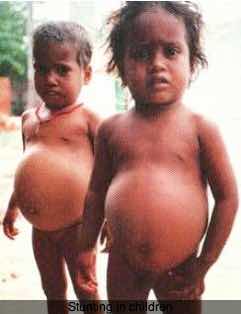
The number of people suffering from severe food insecurity has more than doubled in the last few years. We are now faced with El Nino and the prospect of severe drought adding to their misery. It could not be worse.
Food is still plentiful but purchasing nutritious meals is difficult for those living in rural villages and the urban poor.
“Hunger is not a natural phenomenon. It is a man-made tragedy. People do not starve because there is not enough food to eat. They are famished because the system which delivers it from the fields to our plates is broken.”
- Desmond Tutu, Nobel Peace Prize winner
Ironically around a quarter of the food produced in the world by farmers is never actually consumed, contributing about 8% to greenhouse gas emissions. Our children are starving, literally to death; but getting this surplus to them has clearly proved hopelessly difficult in a country with little social protection of the most vulnerable.
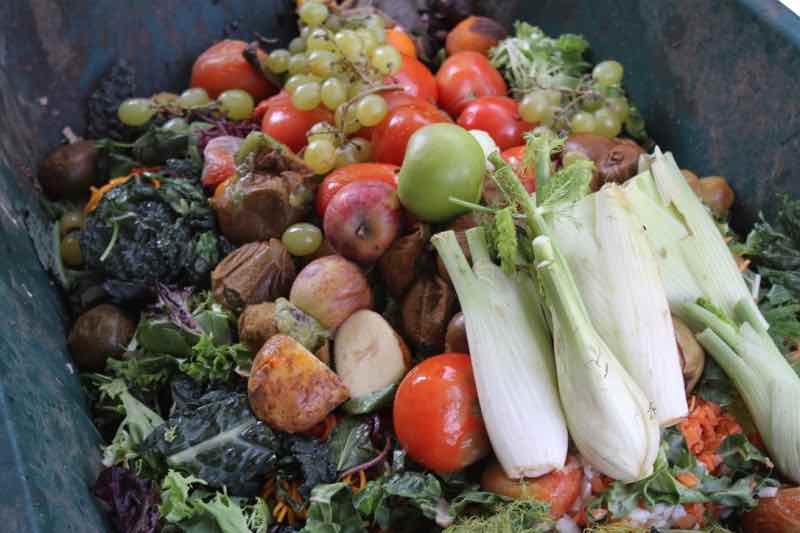 Food waste from a local grocery store
Food waste from a local grocery storeIn fact it’s a worldwide problem. The United Nations has estimated that the number of people facing hunger has increased by well over 100 million in the last three years. Covid and the Russian invasion of Ukraine have devastated global food supplies.
In the UK nearly three million people are hungry and looking for food aid according to the Trussell Trust.
In the USA 10% of households are affected by food insecurity according to the Journal of the American Medical Association[1].
"Obesity among poorer children is often linked to a shortage of protein as cash-strapped parents buy cheaper processed foods and starches. This is why we are seeing an increase in the percentage of kids who are both overweight and stunted."
- Dr David Harrison, MD
Food charities
No question of it charity belongs in the home and at every level of society. It is better to give than to receive is the teaching of all religions. Two-thirds of the discarded rubbish from most countries consists of food waste; rescuing these surpluses and distributing them to the starving millions makes sense.
But when it creates dependency on food handouts we have to ask if we are not simply replacing one problem with another. In any case this kind of charity has not actually scratched the surface of ever-expanding malnutrition, even in wealthy countries.
There is absolutely nothing amiss with collecting food that has passed its sell-by date from supermarkets, restaurants and bakers for example; and distributing it to the poor. But it’s not nearly enough. A band aid on a gaping wound will not suffice; and many working at the coalface of starving children argue that it simply “masks the scale of hunger and malnutrition.”
We have to let nutritionists have their say about expectant mums and school meals; and heed their advice.
The material expressed on this page is gleaned from the nutritional and environmental literature; it is clearly referenced. A plain distinction is made between the author's opinion and that which is scientifically proven. When in doubt consult your health professional.
To suggest a correction or clarification, write to Dr Bernard Preston here. Contact.
Protein
When it comes to protein we should not forget that according to the WHO, processed meat is known to cause cancer; and that from one SA company resulted in many deaths from listeria. We simply cannot allow suppliers to feed our children with known toxic food.
In the opinion of many informed people the state of feeding schemes in South African schools has become a calamity of similar magnitude to catastrophic floods, earthquakes and droughts; and because it is so insidious, we miss the seriousness of it completely.
In Part III we will focus on the confusion between hunger and malnutrition.
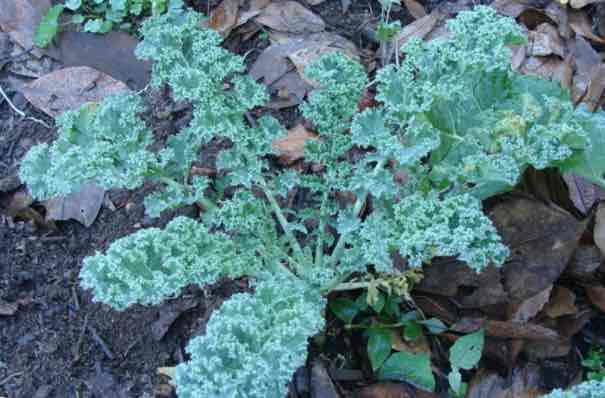 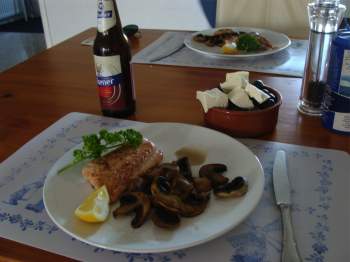 Bernard Preston 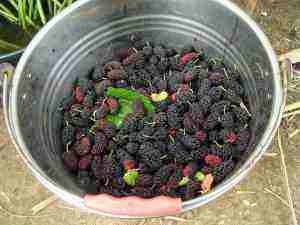 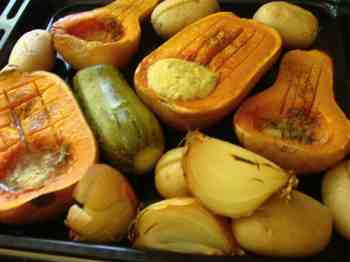 |
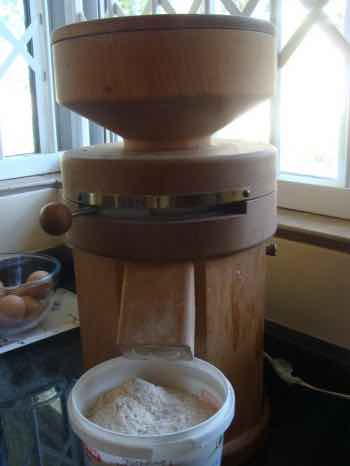 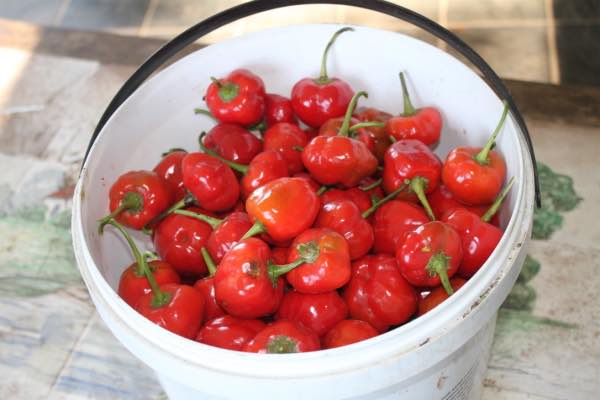 Bernard Preston 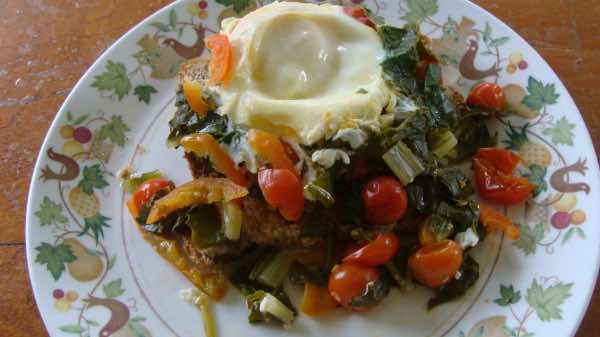 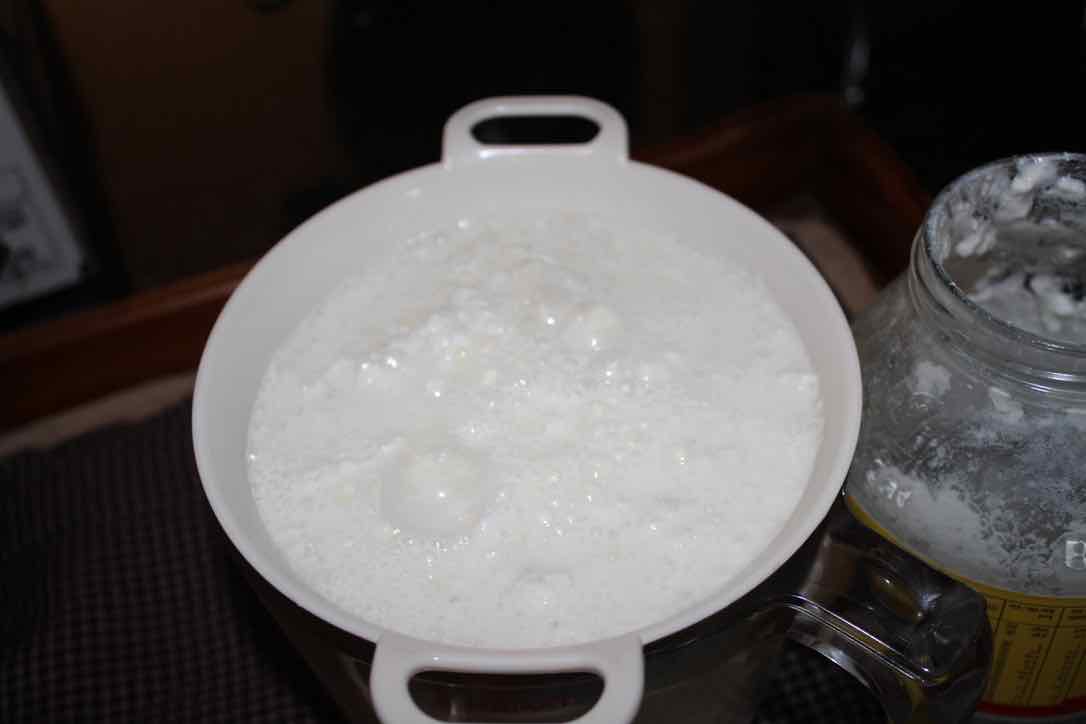 |
Over 40 children die every single day in South Africa from a vitamin A deficiency. Butternut, carrots and yellow maizemeal are great sources.
Stunting story and severe food insecurity
The message needs to be proclaimed loudly and clearly; don’t buy your food, grow it.
This stunting story and severe food insecurity go hand in glove. Governments need to be reminded that the economic cost of poor nutrition of our children costs 11% of Africa's GDP.
The story needs to be proclaimed; we can do this ourselves. Greater wellness comes from growing our own food, not looking for handouts of poor quality meals provided by government.
Dark-green leafy vegetables like kale and spinach are so easy to grow; they supply the folate and many phytonutrients without which children cannot learn properly.
Whole grains contain the lignans that protect women from breast tumours; and supply vitamin E, the natural anticoagulant that prevents heart attacks and strokes.
Kefir and maas supply the probiotics that help prevent inflammation in the body; and the most absorbable form of calcium for strong bones.
- The stunting story has three elements
- Stunting story and severe food insecurity
- Stunting story weighs hunger versus malnutrition
- Stunting story recommends local mills for freshly-ground grains
- Stunting story suggests scenarios to restore harmony and balance
- Stunting story ponders what government could do
When browsing use right click and "Open Link in New Tab" or you may get a bad gateway signal.
Newsletter
Our newsletter is entitled "create a cyan zone" at your home, preserving both yourself and Mother Earth for future generations; and the family too, of course. We promise not to spam you with daily emails promoting various products. You may get an occasional nudge to buy one of my books.
Here are the back issues.
- Lifestyle and ideal body weight
- What are ultra-processed foods?
- Investing in long-term health
- Diseases from plastic exposure
- Intensive lifestyle management for obesity has limited value
- A world largely devoid of Parkinson's Disease
- The impact of friendly bacteria in the tum on the prevention of cancer
- There's a hole in the bucket
- Everyone is talking about weight loss drugs
- Pull the sweet tooth
- If you suffer from heartburn plant a susu
- Refined maize meal and stunting
- Should agriculture and industry get priority for water and electricity?
- Nature is calling
- Mill your own flour
- Bake your own sourdough bread
- Microplastics from our water
- Alternative types of water storage
- Wear your clothes out
- Comfort foods
- Create a bee-friendly environment
- Go to bed slightly hungry
- Keep bees
- Blue zone folk are religious
- Reduce plastic waste
- Family is important
- What can go in compost?
- Grow broad beans for longevity
- Harvest and store sunshine
- Blue zone exercise
- Harvest and store your rainwater
- Create a cyan zone at your home
Did you find this page interesting? How about forwarding it to a friendly book or food junkie? Better still, a social media tick would help.
- Homepage
- Stunting of children
- Food insecurity
Address:
56 Groenekloof Rd,
Hilton, KZN
South Africa
Website:
https://www.bernard-preston.com